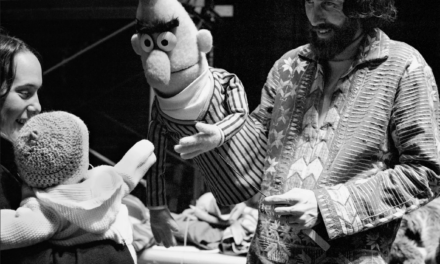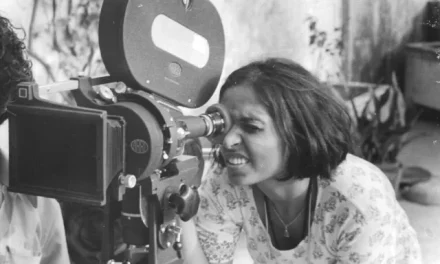The past three decades have seen a remarkable flourishing of documentary film in Russia: the cohort of documentary “masters” who came to prominence in the 1990s, such as Vitaly Mansky, Viktor Kossakovsky, and Sergei Loznitsa have been joined by a new generation of filmmakers, including Askold Kurov, Beata Bubenets, and Alina Rudnitskaya, to name but a few.
This efflorescence has gone hand in hand with the creation of new institutions including film schools and documentary filmmaking programs such as the School of Marina Razbezhkina, Moscow School of New Cinema and Moscow Cinema School, festivals such as ArtDocFest, Flahertiana, and Message to Man, and exhibition venues such as the Center of Documentary Cinema. Once considered a “minor form,” documentary has fully moved into the mainstream cultural discourse, as recent projects by oppositional pop culture figure Ksenia Sobchak and YouTube sensation Yury Dud’, with their million-viewer audiences testify.
The new Russian documentary comes in all shapes and sizes from the politically charged satires of Vitaly Mansky and Askold Kurov to the deeply affecting social documentaries of Elena Pogrebizhskaia and Ekaterina Gordeeva; from the austere observational stories of Marina Razbezhkina graduates to the visually stunning artworks of Victor Kossakovsky; from the dynamic ‘here and now’ projects of Alexander Rastorguev and Pavel Kastomarov to the slow, archival documentaries of Sergei Loznitsa.
We hope that our edited volume, tentatively titled Contemporary Russian Documentary, will open up a scholarly conversation on this incredibly rich and diverse documentary landscape. We define ‘contemporary’ in a broad way as the last thirty years during which documentary in Russia has been free from state monopoly. We deliberately avoid referring to this new cinema as “post-Soviet” or “the cinema of Putin’s Russia,” as these categorizations would inevitably restrict both the texts under consideration and the methodological approach. We adopt a similarly liberal and inclusive approach to what might be considered “Russian” documentary: we hope to solicit essays on a range of Russophone documentaries including films made by Russian directors, those trained in Russia, or trained elsewhere but drawn to making films in and about Russia.
We invite a broad range of submissions on topics including but not limited to:
- particular directors/documentary auteurs;
- documentary trends/movements;
- documentary aesthetics;
- industry studies: institutions, festivals, alternative exhibition venues etc.;
- documentary activism/protest cinema;
- queer documentary;
- documentary in relation to other thriving forms of nonfiction in Russia today, including documentary theater and nonfiction literature.
- films that challenge conventional understandings of documentary/explore mixed forms
Please submit proposals of 300-500 words as well as a brief bio to Anastasia Kostina (anastasia.kostina@yale.edu) and Masha Shpolberg (shpolbergm@uncw.edu) by April 15th, 2021. Selected papers will be due November 1, 2021.





